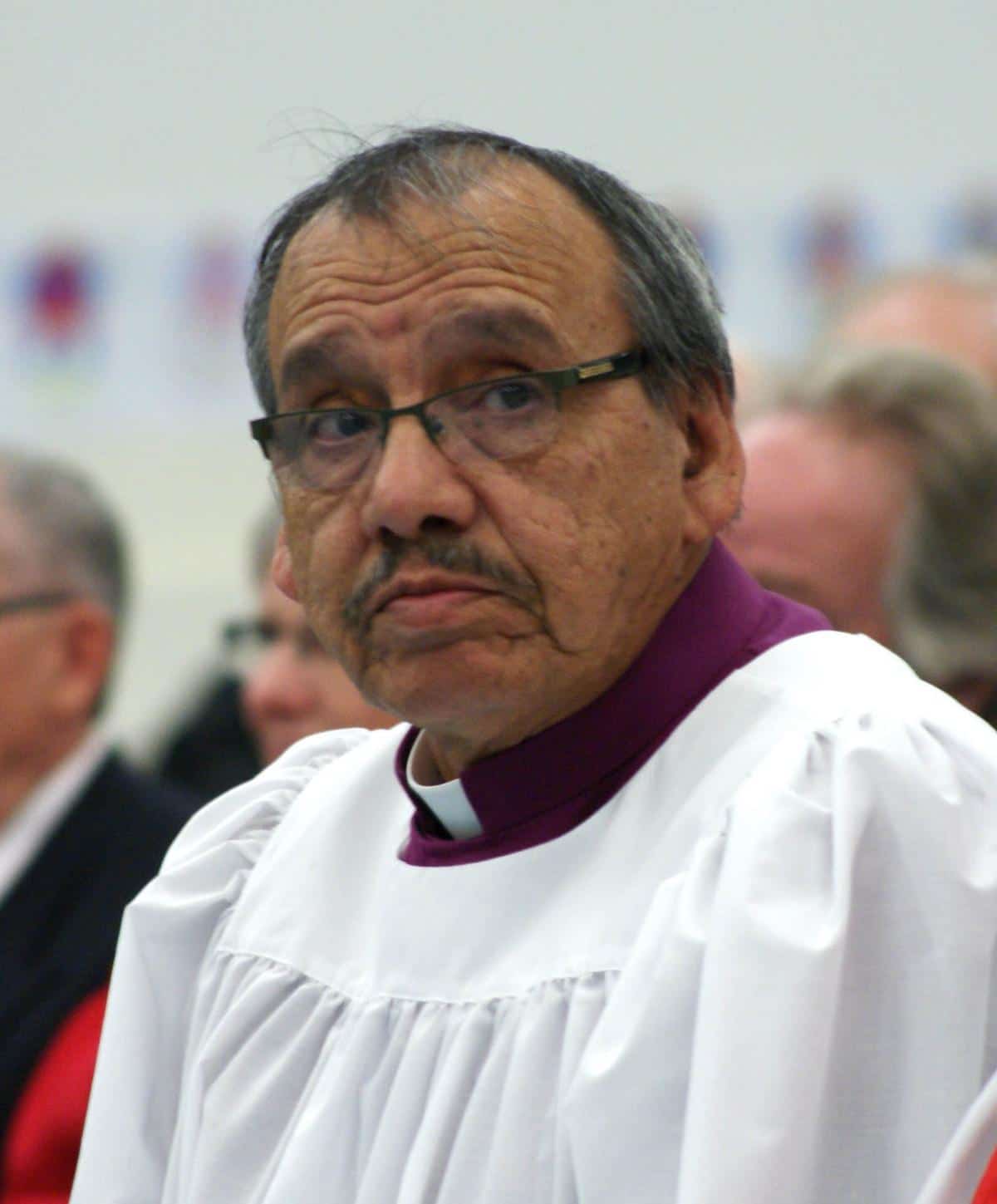
CNC: Tell us about where you live and work.
AH: I live in Prince Albert [SK] now—I moved to Prince Albert because my office is there. My home community is in Montreal Lake, it’s an hour north of Prince Albert.
CNC: Can you tell me about the communities that you serve? Do you minister mainly to the indigenous communities north of Prince Albert?
AH: Yes, northern Saskatchewan, including Grandmother’s Bay, Stanley Mission, LaRonge, those places.
CNC: Are all of those accessible by road?
AH: Yes, they are, pretty well all our First Nations in Northern SK are accessible by road.
CNC: So you do a lot of driving.
AH: Yes, I do, a lot of driving.
CNC: And can you tell me about those communities? Some of them are probably quite isolated and far apar—are there special challenges that you have with ministering to them? The clergy, what challenges do they have?
AH: The clergy that serve those communities have a lot of challenges because of the social problems that we have. Illicit drugs, alcoholism—those are challenges to the clergy, and also to me. And most of our clergy are non-stipendiary—so whatever the community gives to the clergy is helpful.
CNC: So some of them might have employment, and then they do the ministry throughout the day as they can.
AH: Yes, but the demand is 24/7. And most of our communities have a high rate of suicide.
CNC: And with all of those problems, what difference do you think it makes that the Anglican Church is there in those communities?
AH: I have a lot of support from my colleague, Bishop Michael. He’s very supportive—just talking about it helps.
CNC: You don’t feel alone…and I’m sure a lot of the clergy struggle with that too when they have those tragedies and the high needs. And then they can talk to you.
AH: Yes, they do, that’s where we come in, when the call is there. Like just recently, before we left, there was an evacuation [due to flooding in Cumberland House First Nation]—so both Michael and I were supportive of the clergy…and also the Dean in Prince Albert offered the Cathedral for worship, and I’m sure Cumberland House felt good.
CNC: That they were supported by the Church.
AH: Yes.
CNC: Can you tell me a bit about yourself? You were baptized an Anglican as a baby, and then were you raised going to church?
AH: I was born in northern Saskatchewan, then Montreal Lake—my dad was a Montreal Lake band member and so we moved back in 1955. I was very young when they travelled back home to Little Red: Montreal Lake was our first stop or 2nd stop, then to Little Red. They were strong Anglican Christians. Growing up as a teenager I didn’t really attend, but eventually when the calling came, I attended, was a layreader for 17 years, and then called into priesthood and ordained. And then I became the Archdeacon. And then the self-determination was talked about in First Nations communities. So the elders put my name up as one of the candidates, and I accepted and I got in as a bishop. It’s very exciting; I just love doing the Gospel, preaching the Gospel, supporting people that are in need.
CNC: And was James Settee College part of your training?
AH: Yes it is, and it’s still a need in the First Nations communities. Any kind of theology I think will help my native clergy to be able to address some of the issues…
CNC: To feel more equipped.
AH: Yes.
CNC: How has your faith in Jesus made a difference in your life?
AH: I was an alcoholic; I’m an alcoholic in recovery. And I also practiced illicit drugs. So that made a difference: coming to Christ and following him, making that change is rewarding for me.
CNC: And the Council of the North, which receives funding from the rest of the Church—what does that mean to you and your communities?
AH: I know it will help the Diocese of Saskatchewan—whatever support we can get from the Council of the North I’m sure will help the First Nations communities in northern Saskatchewan.
Interested in keeping up-to-date on news, opinion, events and resources from the Anglican Church of Canada? Sign up for our email alerts .
